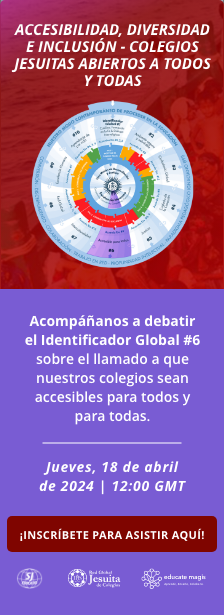As August turns into September, many families around the world are in “back-to-school” mode. There are back-to-school nights, parent-teacher conferences and, of course, the necessary back-to-school clothes and supplies. For 264 million children and youth around the world, though, this reality seems like a distant future.
The Global Red Chair Project was launched last year to raise awareness about the right to education and the fact that millions of youth continue to be denied this inalienable right. This year, we would like to go deeper, and explore together the root causes and consequences of this lack of access, asking questions such as:
Why are there 264 million children and youth out-of-school worldwide?
Why is education so important?
How does education, or a lack thereof, affect our human rights?
Why should I care?
What can I do about it?
For millions around the world human rights are only an idea. As of 2016, 767 million people live in poverty, 400 million lack access to essential health services and over 758 million adults lack literacy skills.
Education is vital to Human Rights.
One of the most important human rights we enjoy is that of the right to education. Education is fundamental to exercising all other human rights. Education allows individuals to lift themselves out of poverty and to socially, physically and emotionally develop. Education not only gives us the skills and knowledge necessary to survive, but it also gives us the power and sense of self-worth to demand our human rights. For example:
- Without education we are more likely to be poor. (Poverty could be reduced by over 55% if all adults completed secondary education, meaning more than 420 million people would be lifted out of poverty.)
- Without education we are less likely to be healthy. (Just four additional years of education can reduce the risk of heart disease and diabetes.)
- Without education we encounter higher rates of inequality and inequity. (Equality and equity lead to better access to jobs and wages and true sustainable development.)
- Without education girls and women are less empowered to assert themselves and stand up for their rights. (Educating girls women = changing gender stereotypes of what girls and women should and can do.)
- Without education we care less about the environment and our effect on it. (Forty-two percent of individuals with a Master’s degree are concerned about the effects of climate change compared to just 25% of individuals with a high school degree.)
- Without education we are less likely to acquire political knowledge (Less political knowledge = less likely to participate in democratic processes, such as voting, and more likely to resort to violence when protesting).
Simply stated, education is vital to addressing social inequality and injustice in our world today.
Why are there 264 million boys, girls and youth out of school? Why should I care?
Before asking whether or not we should care about the millions of children and youth out of school, let’s reflect on a more basic question: Why are there 264 million children and youth not going back to school this month? Why are most of us in the throws of back to school fever with our own children and families, while a group of children around the world sits idly by in refugee camps in Jordan or sells fruit in the overcrowded streets of Lagos, Nigeria. Why do we enjoy our universal right to education and they do not? And, more importantly, is that just?
Whether you live in New York or Nairobi, access to quality and inclusive education can be problematic. [The United States, for example, has one of the highest out of school rates for children among Western nations at 5.5%.] Poverty, climate change, war and gender are just a few of the reasons why there are so many kids out of school. Educate Magis, together with Friends of Fe y Alegría in the US and Entreculturas-Fe y Alegría Spain, will spend the next 10 months exploring some of the root causes of these issues through The Global Red Chair Project.
What can I do?
The first step is reflection and understanding, both the importance of education and the rights and responsibilities that we all share regarding education.
As Fernando Reimers, Director of the Global Education Innovation Initiative at Harvard University, states, “In order to effect change on a global scale, one must be personally responsible, must participate in efforts to remedy injustice, and must seek to understand the causes of problems and injustice worldwide.”
The second step after reflection and understanding must be action. Global citizenship education initiatives, like The Global Red Chair Project, are vital to action. Global citizenship initiatives ensure that our shared responsibility to guarantee human rights are enjoyed by all peoples, regardless of nationality, ethnicity and/or language.
So, we invite you to grab a red chair and join Educate Magis, Entreculturas and Friends of Fe y Alegría, along with several other partners across the global network, to participate in “The Global Red Chair Project”, and if you have already participated, to extend the Global Red Chair Project Experience by raising awareness of some of the reasons why there are so many children out of school, such as: poverty, climate change, war and gender.
It is our collective responsibility to ensure that every single person, every boy, every girl and every young person exercises their right to a quality and inclusive education, regardless of their age, gender, race, religion or sexual orientation. We each have a fundamental and inalienable right to a quality and inclusive education, no matter where we were born or the resources we have.
Thank you for joining us. We look forward to working together today to create the world we want tomorrow!
Sources:
World Bank Group (2016): Taking on Inequality: Poverty and Shared Prosperity 2016. Retrieved from: http://ow.ly/InIP30dotP0
World Health Organization (2015): Tracking Universal Health Coverage: First Global Monitoring Report. Retrieved from: http://ow.ly/iFdN30dox9e
Global Education Monitoring Report (2016): Education for people and planet: Creating sustainable futures for all. Retrieved from: http://ow.ly/hgi930douy7
Global Education Monitoring Report (2017): Retrieved from: http://en.unesco.org/gem-report/
National Bureau of Economic Research (2017): The Effects of Education on Health. Retrieved from: http://ow.ly/p4dN30eMBpN
Reimers, Fernando (2016): Empowering Global Citizens A World Course. Pgs xiii-xxiv
Inicia sesión o Hazte miembro
para crear y ver comentarios

